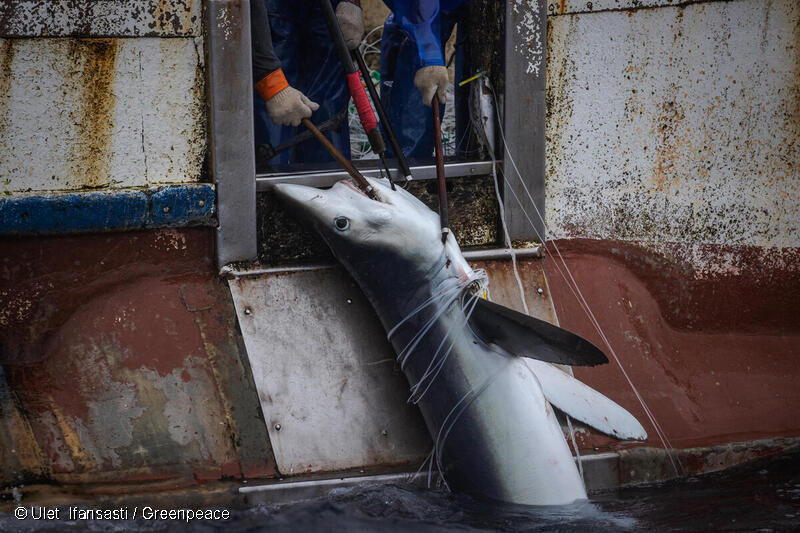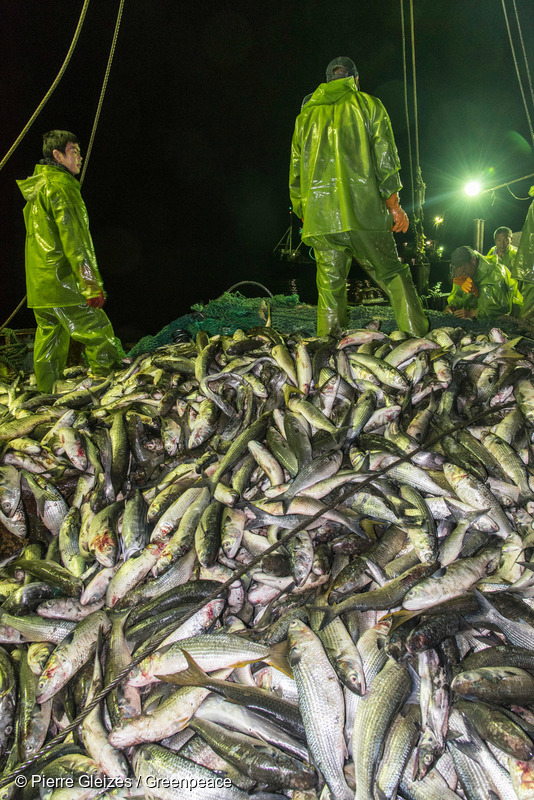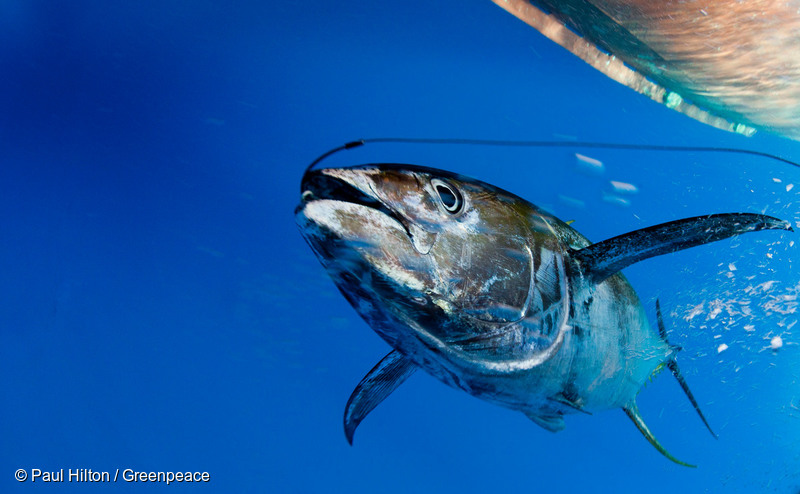
Unfortunately, most of the tuna found on supermarket shelves come from destructive fishing methods that injure and kill other marine animals and exploit and put workers at risk.
New research is casting a harsh light on the Marine Stewardship Council (MSC), a popular seafood eco-label that U.S. retailers use to appeal to eco-conscious shoppers. The study reveals that despite MSC-certified seafood often commanding higher prices and winning customer loyalty, it may still be linked to forced labor. This troubling reality suggests that grocery stores—and the MSC itself—could be profiting from modern slavery while marketing their products under the banner of sustainability.
The multi-year investigation, led by Dr. Katrina Nakamura, an interdisciplinary scientist and founder of the Sustainability Incubator, scrutinized the MSC’s bold claim that its iconic “blue fish” label ensures tuna products are free of forced labor. The certification is meant to assure consumers that their purchase supports healthier oceans and sustainable fishery management. Yet, the MSC, which certifies a staggering 60% of the world’s tuna, insists it is protecting workers across the supply chain, all while raking in licensing fees from seafood producers and retailers whose relentless pursuit of cheap tuna helps perpetuate labor abuses.
Nakamura shared with Greenpeace USA, “The research found that a single source of information is behind the MSC’s assurance of keeping forced labor out: the eco-labeling client. Clearly, seafood companies invest in eco-labeling to promote their products—not to incriminate themselves.”

Dr. Katrina Nakamura is an interdisciplinary scientist and founder of the Sustainability Incubator. Her recent Nature article, “Is tuna ecolabeling causing fishers more harm than good?”, scrutinized the MSC’s bold claim that its iconic “blue fish” label ensures tuna products are free of forced labor.
In 2022, the MSC released a “Sustainable Tuna Handbook” claiming that “the best way for tuna buyers to significantly reduce exposure to these risks [including forced labor] is to choose MSC-certified tuna.” However, Nakamura’s findings paint a different picture. The research shows that most of the tuna vessel owners listed in the MSC program participate anonymously, making it impossible for the organization to assess whether forced labor or illegal fishing occurs in their operations. The study also revealed that 74% of the tuna catches certified by MSC had untraceable vessel conditions, undermining the eco-label’s claim of keeping forced labor out and exposing retailers who use the blue label to shield themselves from public scrutiny.
“The major takeaway of this research,” Nakamura noted, “is that the MSC has established procedures that virtually guarantee its clients will report good practices and deny the presence of forced labor. They provide a template, protected by disclaimers, for clients to use—and then pool and repeat that information on their behalf. This defensive posture relies solely on denial, in direct defiance of the estimated 128,000 fishers currently experiencing forced labor at sea, according to the International Labor Organization.”
These are the fishers who catch the seafood that ends up on our plates, and U.S. retailers—given their economic influence—play a crucial role in shaping the human rights outcomes for tens of thousands of workers. Yet, as Greenpeace USA’s latest tuna supply chain report, The High Cost of Cheap Tuna 2024, reveals, most retailers still fall short in addressing human rights and sustainability concerns. While some have made progress, significant gaps remain in their sourcing practices.
Nakamura also disclosed efforts by the MSC to suppress the study’s findings. “The MSC dismissed the claims, saying its focus is ecological—which, by the way, is a line they forced me to add to the introduction when they pressured the journal during peer review. They’ve twice obtained the research data, findings, methods, and manuscript since June 2023, adjusting their website along the way. While they didn’t succeed in blocking the research, they did try to delay publication and soften the conclusions.”
In an alarming revelation, Nakamura added, “There are fishers working on MSC-certified vessels who are experiencing forced labor. We’re compiling a growing list of fishers who have died while working on MSC vessels—from beriberi, foul play, murder, and untreated injuries. The MSC should consider donating some of the funds it has collected under the guise of protecting fishers to the families of those workers.”
These findings point to a glaring need for change. It is not enough for tuna retailers to rely solely on certifications like MSC to ensure their supply chains are free from exploitation. To truly support sustainable and ethical seafood practices, retailers must stop using their size to push wholesale prices lower and lower and take proactive steps to work directly with their suppliers, tuna processors, and vessel owners to improve conditions on board. This includes preventing illegal, unregulated, and unreported (IUU) fishing practices, as well as addressing human rights abuses – in reality, not in fairwashing.
Moreover, stronger regulations are urgently needed to ensure that all seafood sold in the U.S. is free from IUU fishing and slavery at sea. Authorities should also facilitate access to justice and provide effective remedies for fishers who experience human rights violations.
It’s time for retailers and policymakers alike to go beyond empty promises and take meaningful action to protect both the ocean and the rights of those who work in the industry.



